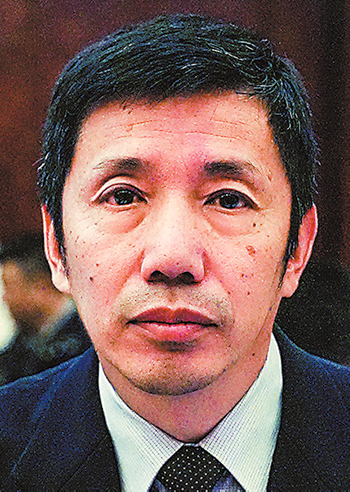'Fengdeng' a friendly, intelligent tool for farmers


If you're new to agriculture and have a piece of land you'd like to cultivate, the Seed Large Language Model "Fengdeng", released in April last year, could be a valuable resource.
Fengdeng acts as a personal farming adviser, recommending crop varieties best suited to your land and guiding you on planting techniques based on your land's characteristics. It can also suggest treatments and necessary nutrients if crops encounter health issues.
Developed through a collaboration between the Yazhouwan National Laboratory in Hainan province, China Agricultural University in Beijing and the Shanghai Artificial Intelligence Laboratory, Fengdeng is China's first large language model for seed design, also known as SeedLLM.
Chen Fan, a deputy to the National People's Congress and deputy director of the Yazhouwan National Laboratory, emphasized Fengdeng's capability in integrating biotechnology, big data and artificial intelligence to support agricultural work and research.
"Digitalization and intelligence are undoubtedly the future directions for building the 'Nanfan Silicon Valley'," Chen said. "We must use high technology to serve and transform both production and research of agriculture."
"Nanfan" refers to a unique breeding process that leverages Hainan's warm winters as a natural breeding accelerator. According to the Construction Plan for Building the National Nanfan Silicon Valley 2023-2030, released in January last year by the Ministry of Agriculture and Rural Affairs, the Nanfan Breeding Base in Hainan is set to evolve into the "Silicon Valley" of China's seed industry by 2030, serving as a comprehensive hub for agricultural research, industry and technology exchange.
Fengdeng is just the first step in creating an intelligent breeding model, Chen said.
"In the future, we will incorporate vast data sets, including genotype, phenotype and environmental data, into the model to create a 'navigation system' that helps scientists breed optimal crop varieties more quickly," the NPC deputy said.
"Traditionally, developing a specific, high-yield crop variety for a particular location could take decades due to insufficient information," he said. "With an intelligent breeding model, this timeline can be cut to a few years."
He likened it to using a navigation system instead of a paper map, allowing for instant route optimization and real-time adjustments.
On Feb 23, China unveiled its No 1 Central Document for the year, emphasizing the role of the Nanfan Silicon Valley in developing breakthrough crop varieties and promoting the industrialization of biological breeding.
"China faces a significant soybean supply gap, with imports reaching 105 million (metric) tons last year. So, the research on soybean variety with high yield is an important part of our work," Chen said.
Last year, the Yazhouwan National Laboratory research team successfully developed a new salt-tolerant soybean variety with an average yield of over 4.5 tons per hectare, surpassing both China's current average of 2.25 tons and the US's 3.37 tons.
"This new variety is a small step toward greater self-reliance in soybean consumption. Going forward, our breeding efforts will focus on increasing average yields and enhancing specific traits such as high protein content and salt tolerance of crop varieties," Chen said.
"In the field of breeding industrialization, we are promoting the integration of innovation chains, industrial chains and capital chains to quickly transform industry needs into innovation tasks," he noted.
In December, the Yazhou Bay Biological Breeding Industry Alliance was established, with member organizations including the China National Seed Group and the Yazhouwan National Laboratory. The alliance aims to foster innovation in gene editing and accelerate the application of biotechnology in agriculture.
As China advances intelligent and industrialized breeding, it is also sharing its expertise globally. In November, the China-LAC Sustainable Food Innovation Center was established in Sanya Yazhou Bay Science and Technology City, marking a significant step in global agricultural cooperation.
"China is now at the forefront of global biotechnology research," Chen said. "We hope to engage in mutually beneficial collaboration with other countries, extending the benefits of our research beyond our borders."
- Doctor injects child with improperly stored drug at Chongqing hospital
- Xi's special envoy attends forum dedicated to Intl Year of Peace and Trust in Turkmenistan
- Memorial ceremony remembers victims of Nanjing Massacre
- Louvre's largest showcase in China goes on display at Museum of Art Pudong in Shanghai
- Indonesian foundation to fund students, school administrators to exchange and study in Tianjin
- Archives detailing crimes of Japanese unit released





































